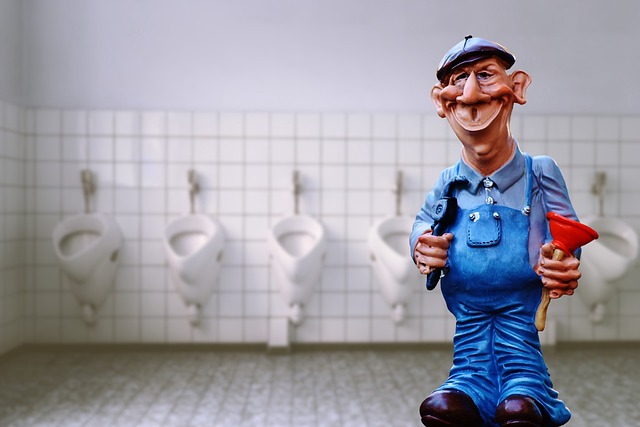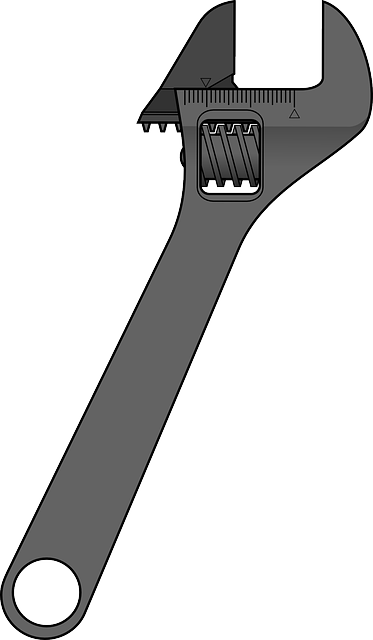When deciding between DIY and professional plumbing repair, consider your skill level and toolset. Simple tasks like unclogging drains or replacing faucets may be DIY-friendly, but complex jobs requiring pipes, valves, and fixtures demand professional expertise. Professional plumbers use specialized tools and training to efficiently resolve diverse issues and offer preventive maintenance advice for optimal system health. Recognize the difference between DIY and professional plumbing to ensure safe, effective repairs and avoid further damage.
Plumbing repairs can be a daunting task for homeowners, leaving many wondering: should I roll up my sleeves or dial a pro? This article guides you through the decision-making process by assessing your plumbing repair skills and tools, highlighting the benefits of hiring professionals, and determining when to leave complex tasks to experts. Learn about DIY vs. professional plumbing repairs to ensure safe, effective solutions for your home’s plumbing needs.
- Assessing Your Plumbing Repair Skills and Tools
- – Identifying simple DIY plumbing tasks
- – Determining when tools and equipment are needed
Assessing Your Plumbing Repair Skills and Tools

Before deciding whether to tackle a plumbing repair yourself or call in a professional, it’s crucial to assess your skill level and available tools. Plumbing repairs can range from simple, one-off issues like unclogging a drain or replacing a faucet to complex jobs involving pipes, valves, and fixtures. If you’re comfortable with basic DIY tasks, some minor plumbing repairs may be suitable for you to attempt. Having the right tools is essential; a standard toolkit should include items like pliers, wrenches, and screwdrivers of various sizes. For more intricate work or if your confidence levels are low, it’s often safer and more effective to dial a pro. Professional plumbers are equipped with specialized tools and extensive training, making them adept at handling a wide range of plumbing issues efficiently and effectively. They can also provide valuable insights into preventing future problems, ensuring your home’s plumbing system remains in top condition.
– Identifying simple DIY plumbing tasks

Plumbing repairs can often be categorized into simple, manageable tasks that homeowners can tackle themselves (DIY) and more complex issues that require the expertise of a professional plumber. Before rolling up your sleeves or reaching for your phone, it’s essential to understand what falls into each category.
Simple DIY plumbing tasks typically involve unclogging drains using household items like baking soda and vinegar, replacing faucet washers, or fixing minor leaks around pipes or appliances. These jobs often don’t require specialized tools or knowledge and can be completed with a bit of patience and follow-through. On the other hand, if you’re dealing with issues like broken pipes, faulty water heaters, or complex repiping, it’s best to dial a pro. These situations demand specific skills, knowledge of building codes, and access to professional-grade tools, making DIY repairs not only challenging but potentially unsafe.
– Determining when tools and equipment are needed

When it comes to plumbing repairs, knowing when to tackle tasks yourself and when to call in a professional is key. Many minor issues can be easily resolved with some basic DIY skills and the right tools. Tools like pliers, wrenches, and a simple bucket for clean water are often all you need to fix leaky faucets, unclog drains, or replace a toilet flapper. These tasks usually involve straightforward procedures that can be quickly learned from online tutorials.
However, not all plumbing problems are cut and dry. Complex repairs, such as repiping, sewer line replacement, or fixing intricate valve systems, require specialized equipment and expertise. Attempting these tasks without proper training can lead to further damage or even pose safety risks. In cases where the problem is beyond your comfort level or involves major components of your plumbing system, it’s best to dial a pro. Professional plumbers have access to advanced tools and technology, ensuring efficient and effective solutions for any DIY vs. professional plumbing dilemma.
When it comes to plumbing repairs, deciding between DIY approaches and calling a professional depends on your skills, time, and the scope of the issue. For minor leaks or simple installations, DIY methods can be cost-effective and satisfying. However, complex problems may require specialized tools and knowledge, making it safer and more efficient to trust a licensed plumber. Knowing when to roll up your sleeves and when to dial a pro ensures you maintain a functional plumbing system with minimal hassle.
